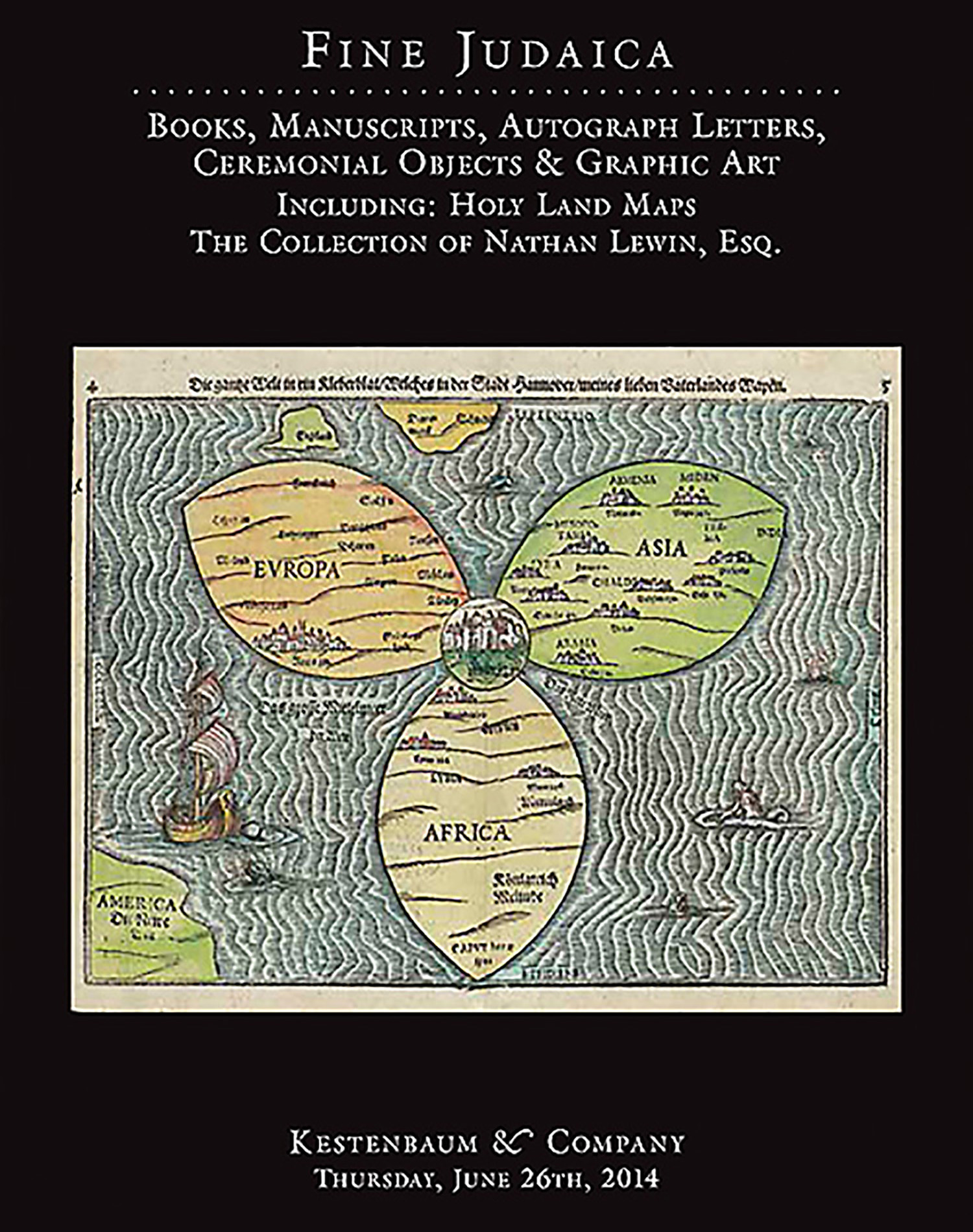Feiner (Dinur), Yechiel. Tzveiuntzvantzik - Lider [”Twenty-two Poems.”]

AUCTION 62 |
Thursday, June 26th,
2014 at 1:00
Fine Judaica: Books, Manuscripts, Autograph Letters, Graphic and Ceremonial Art
Lot 119
(KA-TZETNIK 135633).
Feiner (Dinur), Yechiel. Tzveiuntzvantzik - Lider [”Twenty-two Poems.”]
Lodz: Ch. Wein for Warsaw’s Kultur-Lige 1931
Est: $7,000 - $10,000
PRICE REALIZED $11,000
<<POSSIBLY THE ONLY COMPLETE COPY EXTANT OF Ka-Tzetnik’S FIRST PUBLICATION. SIGNED BY THE AUTHOR ALONGSIDE FRONTISPIECE PHOTOGRAPHIC PORTRAIT. WITH THE ORIGINAL ILLUSTRATED PRINTED COVERS.>>
A book of 22 deeply emotive poems penned by the 22-year old Yechiel Dinur (later Ka-Tzetnik 135633). At the time of publication, the author was a Chassidic student studying in Chachmei Lublin, Poland’s most highly-selective yeshiva.
Dinur (1909-2001) was the only member of his extensive family from Sosnowiec to survive the horrors of the Holocaust, eventually arriving in Israel from Poland in a state of deepest depression verging on suicide. Nonetheless he began to write, penning in lurid detail the torments and tortures of living through the horrors of the Auschwitz concentration camp, using the pen-name “Ka-Tzetnik 135633.” KZ (pronounced Ka-Tzet) is the German acronym for “Konzentrationslager,” and in concentration camp slang, a Ka-Tzetnik is a concentration camp prisoner.
It was his appearance at the Jerusalem trial of Adolf Eichmann in 1961 that the broader Israeli public first had a glimpse of this secretive man when he dramatically fainted shortly after taking the stand as a witness for the prosecution. In response to the question why he hides behind the name Ka-Tzetnik, Dinur responded: “Auschwitz was a different planet… time there runs differently than it does here on Earth. Residents of that planet were human skeletons and had no names. They had no parents and no children. They weren’t born there and didn’t give birth. They breathed according to different laws of nature. They didn’t live according to the laws of the world here, and they didn’t die. Their name was their Ka-Tzetnik number.” Speaking of the other prisoners in Auschwitz, he said: “I see them, they are looking at me, I see them…” At which point of testimony Dinur collapsed. The trial’s chief prosecutor Gideon Hausner later wrote that the effect of these few words contained “more than many, many volumes of testimony” and thus utterly gripped the public.
Even after his identity was revealed, Dinur refused to speak about his pre-Auschwitz past, as if he were “born” in the death camp. On rare occasions when he explained his reluctance to discuss his past, he said he had no right to live except as a Holocaust survivor, for that all that had existed prior was utterly destroyed. Hence he actively sought out the handful of extant copies of this book of poetry from his yeshiva days and destroyed them. When in 1993 Ka-Tzetnik discovered that a copy of Tzveiuntzvantzik existed in Jerusalem’s Hebrew University Library, he promptly stole it and then sent the charred remains back to the library with the instruction to burn the remnants of the book “just as my world and all that was dear to me was burnt in the Auschwitz crematorium.” In 2011 these remnants were exhibited in the Israel National Library alongside such universal totemic rarities as autograph manuscripts by Maimonides, Sir Isaac Newton and Franz Kafka.
See Tamir Venadir, Unrivaled, Unrevealed: Select Treasures of the National Library (Jerusalem, 2011) pp. 52-3.
<<KA-TZETNIK’S IMMENSELY SCARCE FIRST BOOK WRITTEN IN HIS YOUTH IN POLAND. OF THE UTMOST RARITY.>>
